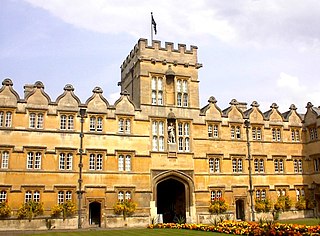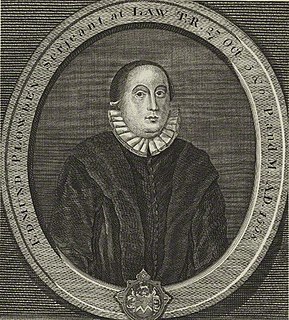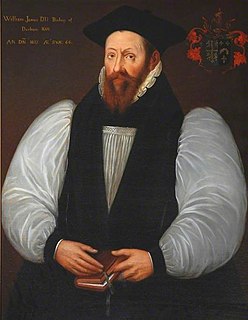Anthony Gate was an Oxford academic and administrator. He was Fellow and Master of University College, Oxford. [1] [2]

The University of Oxford is a collegiate research university in Oxford, England. There is evidence of teaching as early as 1096, making it the oldest university in the English-speaking world and the world's second-oldest university in continuous operation after the University of Bologna. It grew rapidly from 1167 when Henry II banned English students from attending the University of Paris. After disputes between students and Oxford townsfolk in 1209, some academics fled north-east to Cambridge where they established what became the University of Cambridge. The two ‘ancient universities’ are frequently jointly called ’Oxbridge’. The history and influence of the University of Oxford has made it one of the most prestigious universities in the world.
A Master is the head or senior member of a college within a collegiate university, principally in the United Kingdom. The actual title of the head of a college varies widely between institutions.

University College is a constituent college of the University of Oxford in England. It has a claim to being the oldest college of the university, having been founded in 1249 by William of Durham.
At Oxford University, Gate took his MA degree in 1572 and his B.Med. (his highest degree, in medicine) in 1580. He was the first layman to be elected Master of University College. [3] He took office on 15 September 1584, after William James resigned to become Dean of Christ Church. There would not be another layman as Master of the College until Reginald Walter Macan in 1906, so this was an unusual choice for the time.

Medicine is the science and practice of establishing the diagnosis, prognosis, treatment, and prevention of disease. Medicine encompasses a variety of health care practices evolved to maintain and restore health by the prevention and treatment of illness. Contemporary medicine applies biomedical sciences, biomedical research, genetics, and medical technology to diagnose, treat, and prevent injury and disease, typically through pharmaceuticals or surgery, but also through therapies as diverse as psychotherapy, external splints and traction, medical devices, biologics, and ionizing radiation, amongst others.

Christ Church is a constituent college of the University of Oxford in England. Christ Church is a joint foundation of the college and the cathedral of the Oxford diocese, which serves as the college chapel and whose dean is ex officio the college head.
Reginald Walter Macan D.Litt. (1848–1941) was a classical scholar. He was a Fellow (1884–1906) and then, from March 1906, Master of University College, Oxford. He was only the second layman Master of the College after Anthony Gate, Master from 1584–1597.
Gate was married to Judith. They lived in the Lodgings and his four sons (Peter, Nathaniel, Timothy, and Thomas) all attended University College for their education.[ citation needed ]



